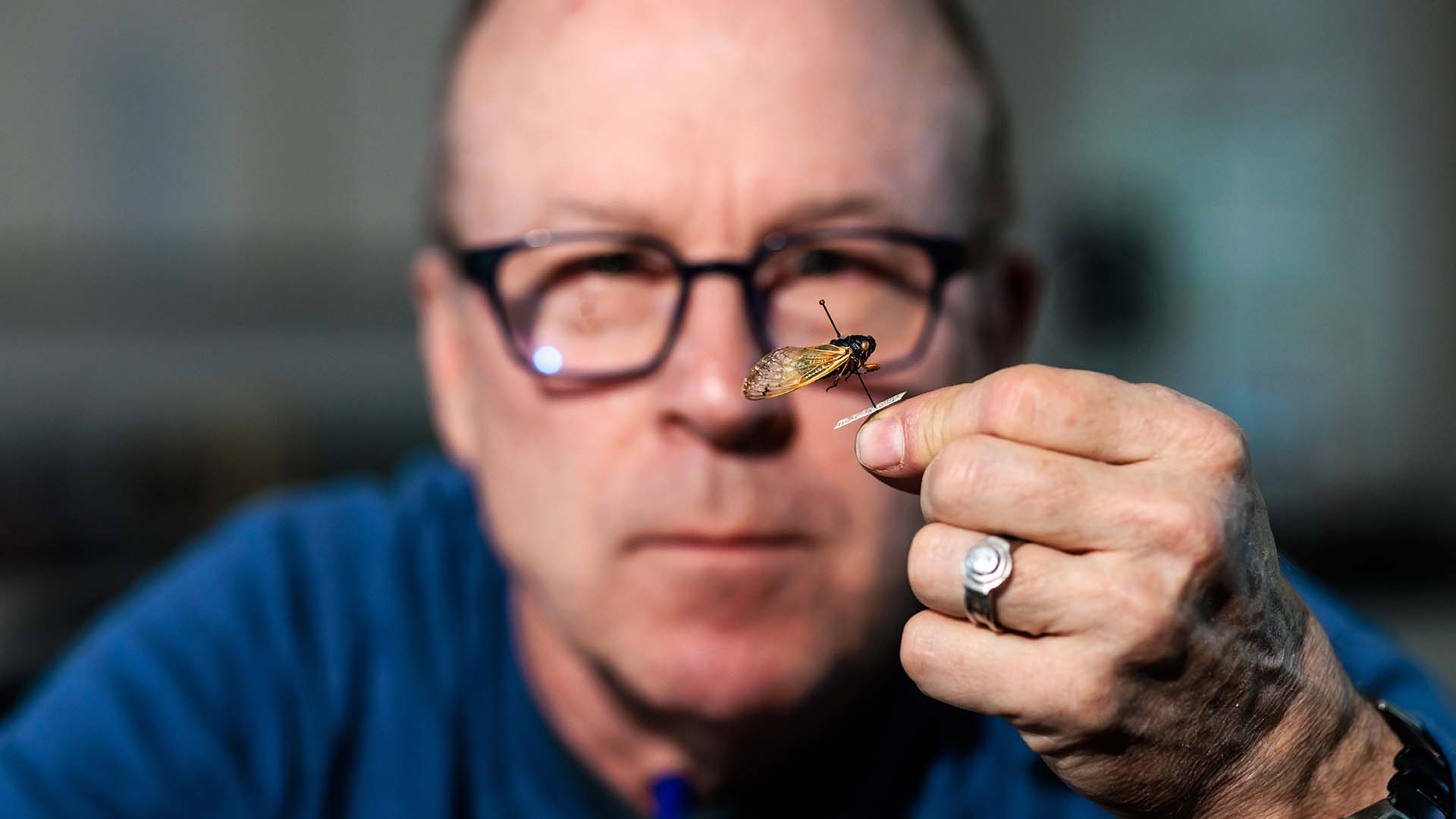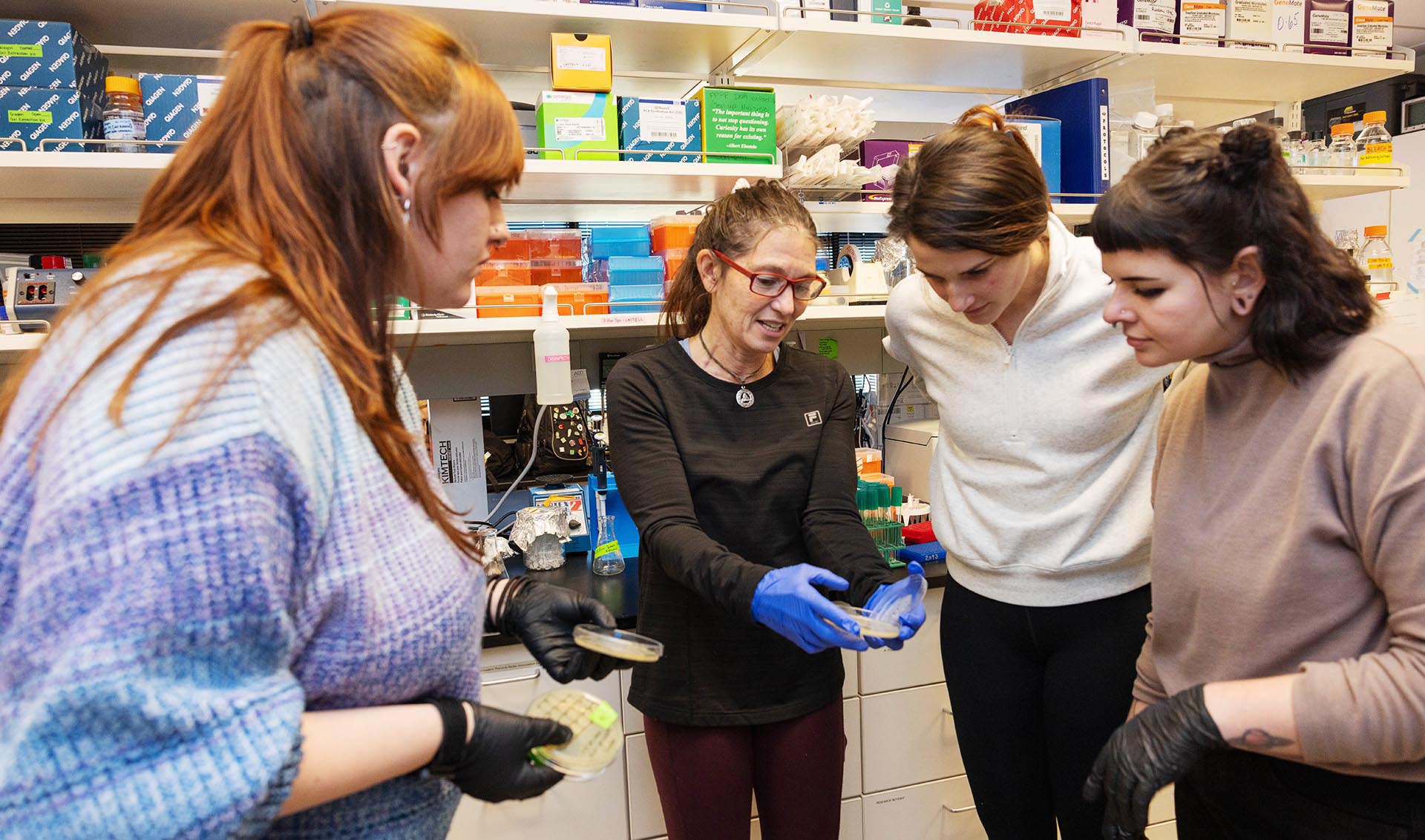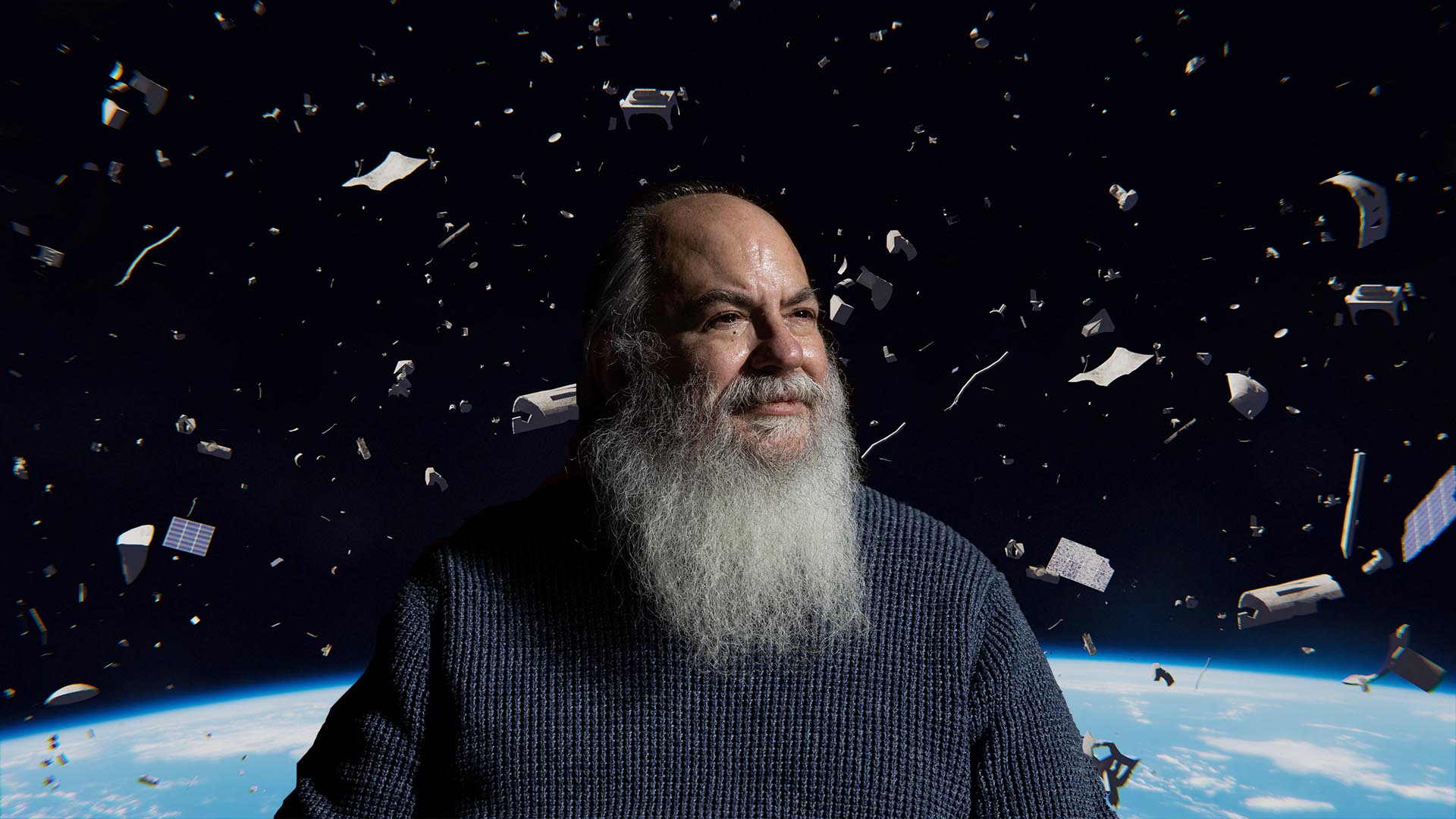Made in Denver: Reloptix VR eyewear
Industrial Design grad provides a clearer view of virtual reality for people who wear glasses.
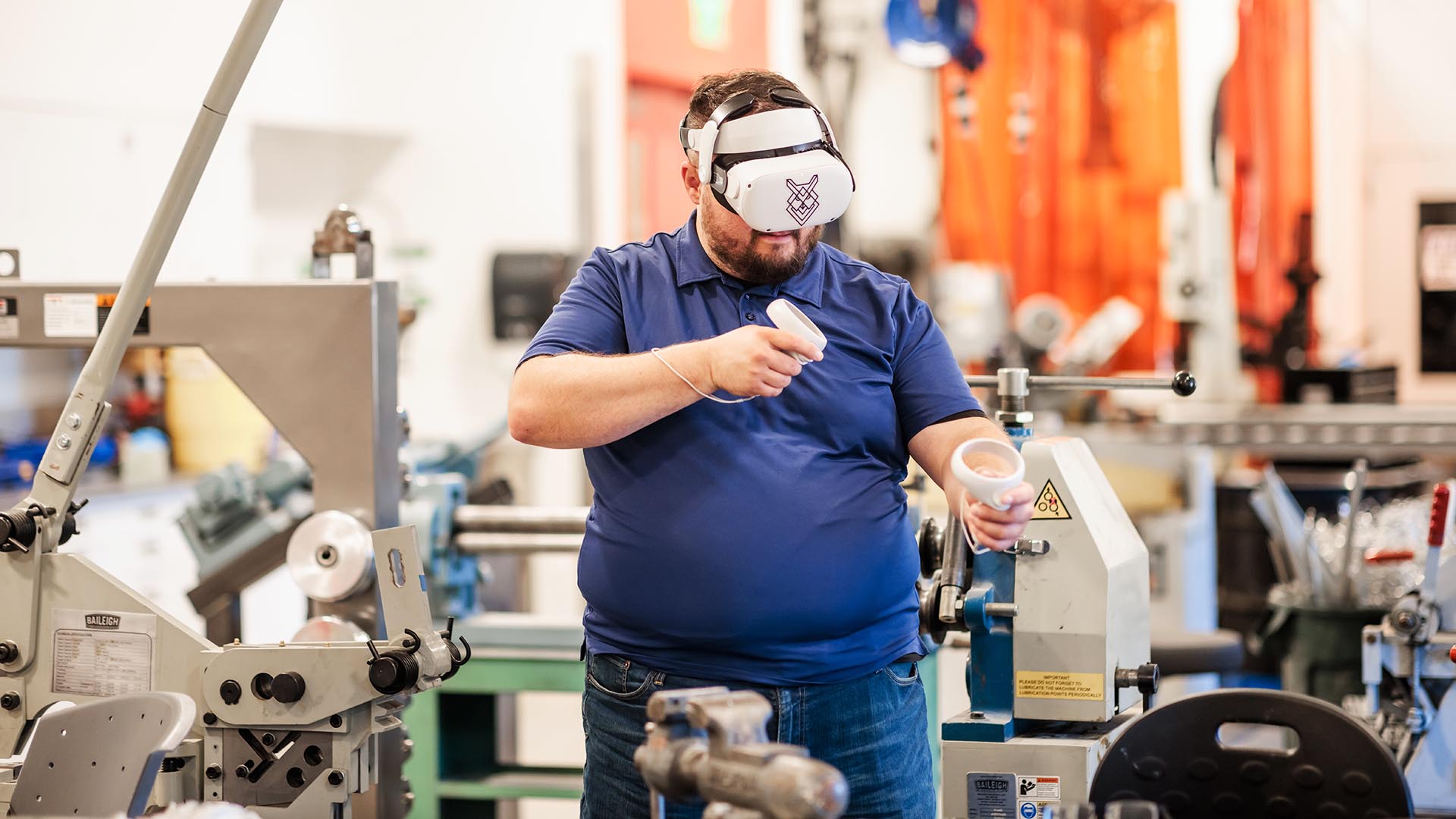
Editor’s note: Throughout fall, RED’s Made in Denver series will highlight Mile High business owners who graduated from MSU Denver programs.
At a wedding a few years ago, William Nalker didn’t go home with the bride, but he met the partner who would change his life.
Nalker, a 2019 Metropolitan State University of Denver Industrial Design graduate who lives in Frederick, is friends with a group of people he has been gaming with online for years. One day, one of them asked Nalker to officiate his wedding.
“I thought he was kidding at first,” Nalker said. “I said, ‘OK, we’ve known each other online for years, but this is the first time we’ll ever meet. Are you sure?’
The groom was sure, and it turns out he wasn’t the only gamer at the wedding Nalker would meet in person for the first time.
He and Jason Salinas, an optician, struck up a conversation that planted the seed for a friendship and business partnership that helps people see in the virtual-reality world.
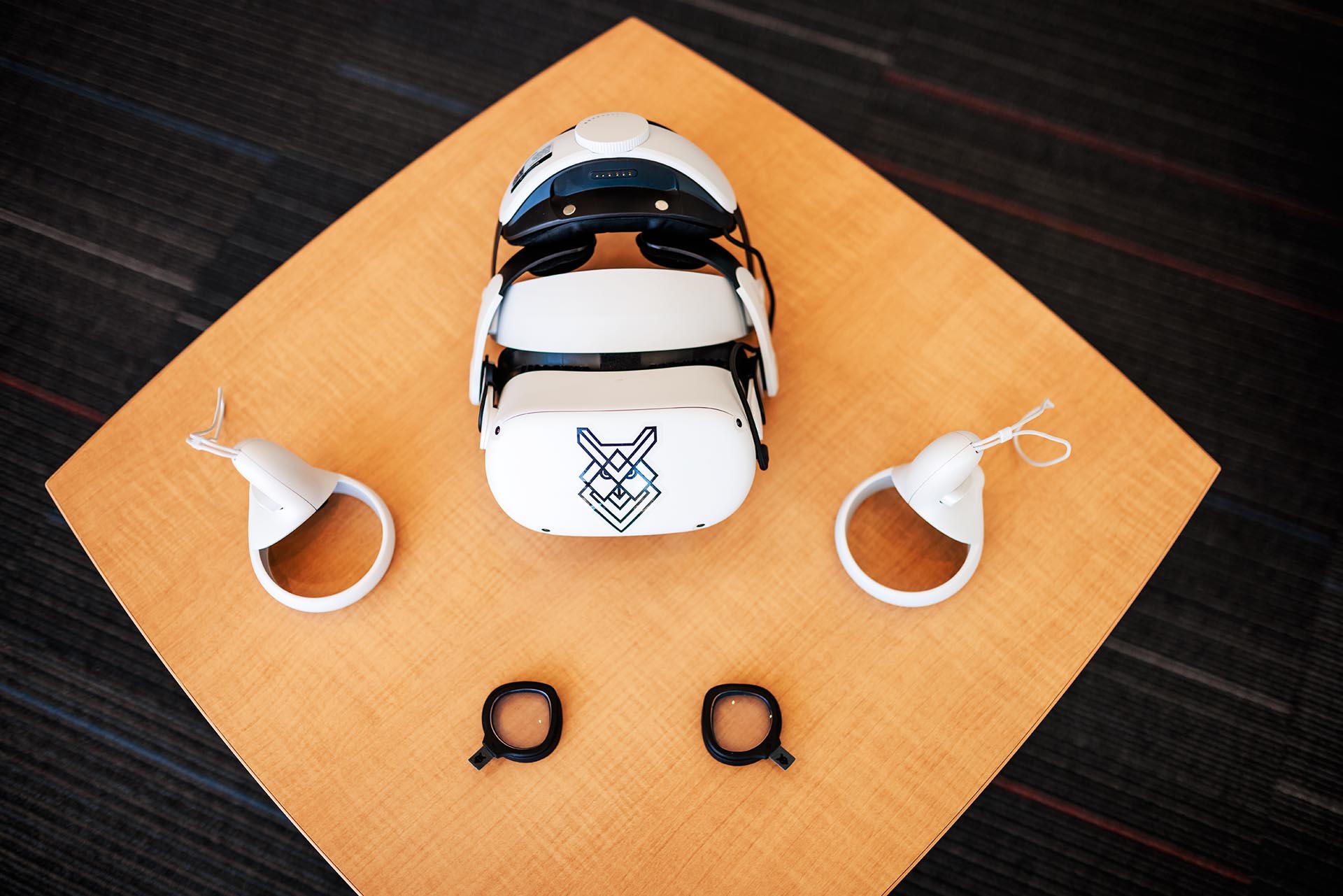
Nalker and Salinas are co-founders of Reloptix, which makes prescription lens inserts for VR headsets. If you’ve ever tried to fit a headset over your glasses, you know how awkward that can be.
“It’s just difficult trying to fit your glasses inside these headsets, and it’s painful,” Nalker said. “People try to shove their glasses in there, and they end up scratching their glasses’ lenses and the lenses of the headset, which are irreplaceable. You can’t just pop those out. If they get scratched, you’re screwed.”
The inserts come in two parts: an adapter that attaches to the headset and separate magnetic frames that snap on top of it. The lenses, which include reflective coating, come with a stylish, durable case. The company can even handle prescriptions with high astigmatism.
“I wanted to make eyewear for VR headsets — something that was aesthetically pleasing and functional,” Nalker said.
The idea for Reloptix came about just months after Nalker officiated the wedding where he first met Salinas in person. Nalker had wanted to design eyewear, and Salinas was interested in making prescription lenses for headsets. Nalker started working on prototypes during his final semester in MSU Denver’s Industrial Design program.
“We went through probably 60 different iterations, and a lot came from learning how to deal with that in school, the various Industrial Design classes I took,” he said. “They teach you that the first solution you come up with may not be the perfect solution. I’m still fine-tuning things, even as the product is on the market.”
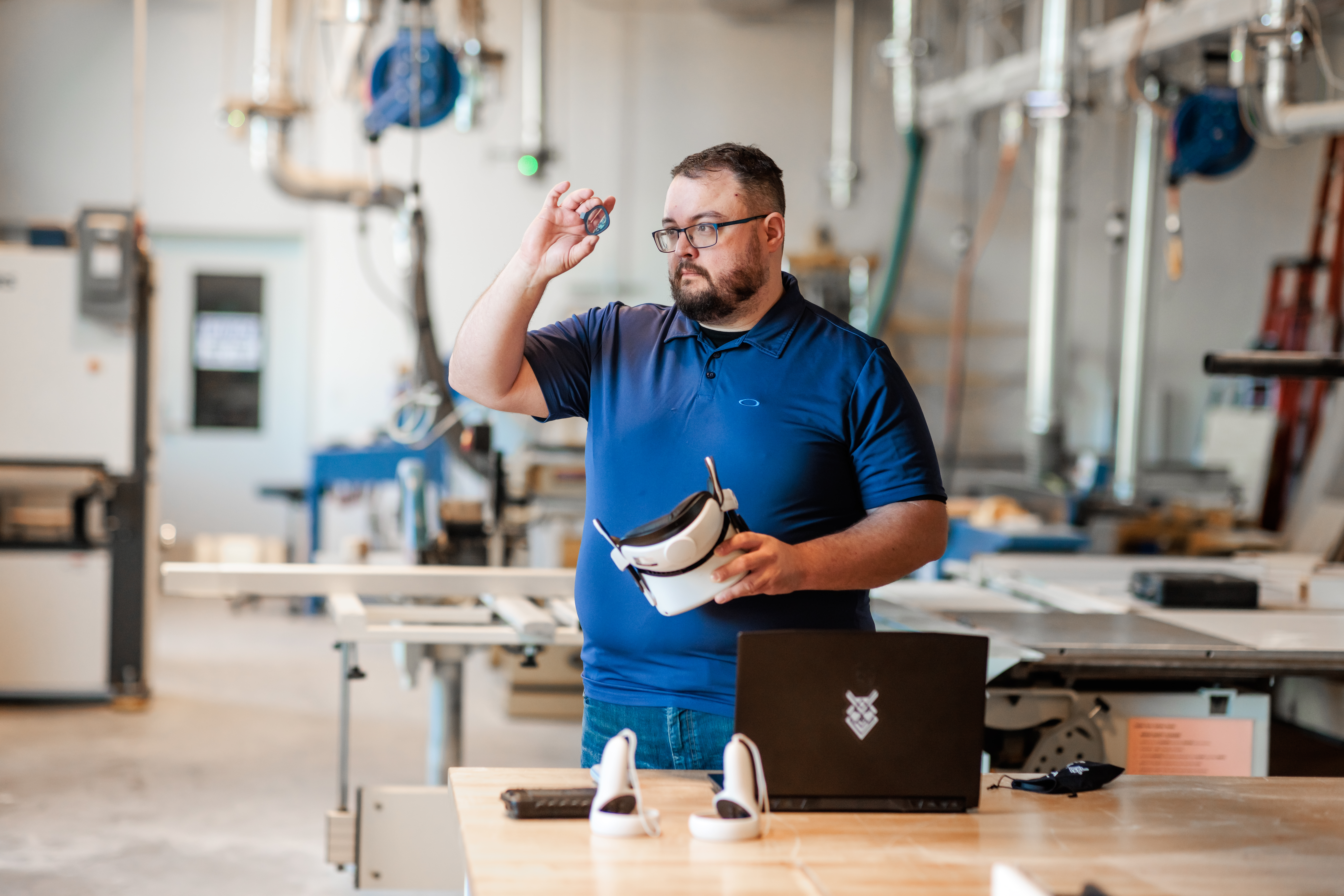
Nalker described the process early on as “trying.” After college, he was working two jobs, including at Make4Covid, a Colorado-based company that makes personal protective equipment for medical staff members, which was highly sought in the early months of the pandemic. On top of that, he was trying to get his business off the ground. Nalker said it was difficult, “but it helped me keep my mind off what was going on at the time.”
RELATED: Success by design
These days, Nalker says business is good. And the positive reviews on his website reflect that.
“It’s changed (customers’) entire dynamic, which makes me feel good,” he said. “There are people that literally had to wear glasses their entire lives. Every aspect of their lives is dictated by whether or not they have to keep their glasses on because their vision is so bad. This gives them the opportunity to feel like everyone else.”
So the moral of the story could be: Don’t ever turn down a wedding invitation.
“And don’t ever think your friend is kidding with you when they say you’re going to officiate a wedding,” Nalker said with a laugh.
Vic Vela is a news and podcast host for Colorado Public Radio, an affiliate faculty member in MSU Denver’s Department of Journalism and Media Production, a 2000 MSU Denver Speech Communications graduate and a contributor to NPR’s “Here and Now” and MSU Denver’s RED.

